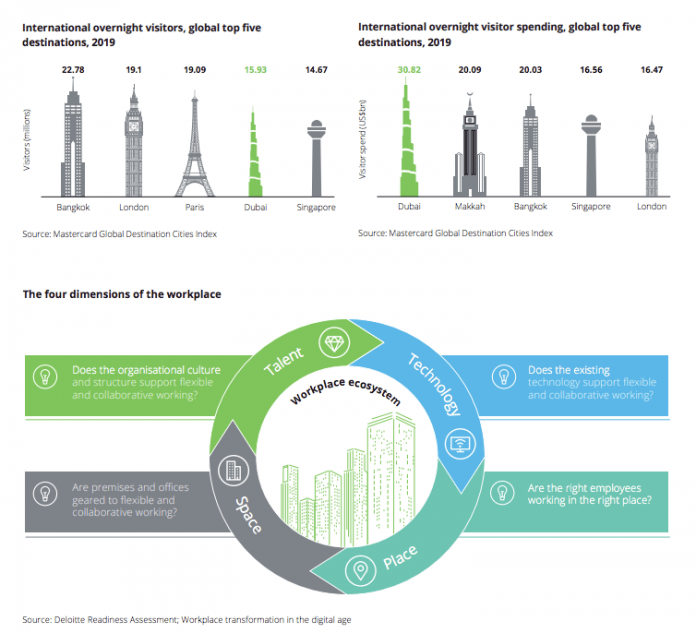
Deloitte launched the sixth annual Middle East Real Estate Predictions, Dubai, which examines the performance of Dubai’s real estate market in 2019 and forecasts the changes in the hospitality, residential, office, retail and industrial and logistics markets in 2020.
Oliver Morgan, Director and Head of Development in Deloitte’s Real Estate team in the Middle East said, “Dubai continues to grow as a logistics hub and tourist destination. Significant infrastructure investment has been made ahead of Expo 2020 and whilst there are still oversupply issues in key residential and commercial sectors, fundamental drivers are in place for recovery in the long term.”
Dubai is expected to retain its position as one of the most attractive tourism destinations in the world, in terms of the total number of international overnight visitors and visitor spend. ADRs continue to experience downward pressure as a result of increasing supply and minimal demand growth. As key performance metrics are under pressure, it is essential for hotel owners and operators to understand how to differentiate their offering and manage revenue.
The residential market has experienced significant pressure owing to an increase in supply. Cost conscious residents have a wide range of product to choose from and as such landlords and developers are providing increased incentives for tenants and buyers, to include rent-free periods and favorable payment structures.
Consolidation and workplace optimisation continue to drive occupier demand in the office sector. Remote working and a greater application of technology has is increasingly influencing operating metrics for property owners, with shorter lease terms, “plug and play” or ready to move options and flexible floor plates designed to attract a wider customer base.
Dubai’s Food & Beverage industry is in the midst of a significant transformation with online disruptors changing how often consumers dine out. Over the course of 2019, several major F&B market players have cited high rents often incorporating a turnover provisions as a key challenge for the sector. Meanwhile with an increase in competing supply, tenants are often in a dominant position when negotiating incentives such as rent free periods and capital contributions; in particular, for unique, well positioned and quality F&B concepts that can drive footfall.
Logistics and 3PL firms are expected to be among the primary drivers of demand for industrial units in the future. One of the critical success factors in the coming years will be the use of robotics or automation to improve supply chain efficiencies and to gather information on where things are and where they need to be. This autonomous tracking is expected to make the logistics sector more efficient, releasing information from silos and reducing bottlenecks.
Robin Williamson, Head of Real Estate, Deloitte Middle East commented: “Dubai’s real estate market is not without its challenges and falling capital and rental values, particularly in the residential sector, generally translate into lower returns for certain developers and investors. The flip side to this is that Dubai is becoming a much more affordable location, for a wider target audience, the key to success will be translating this into actual demand.”


































